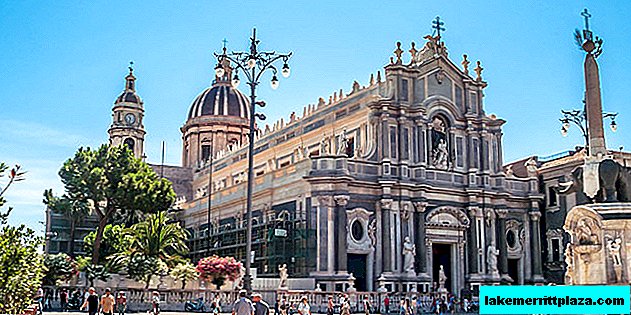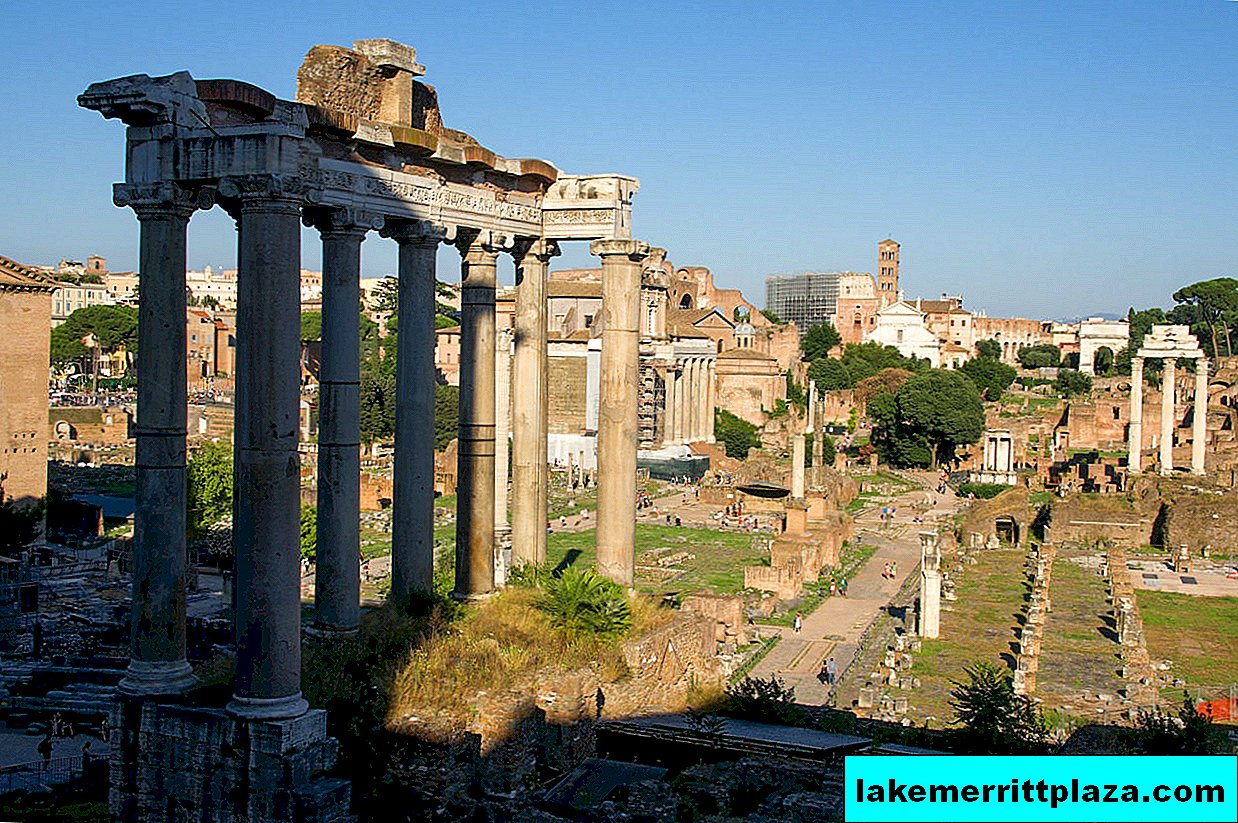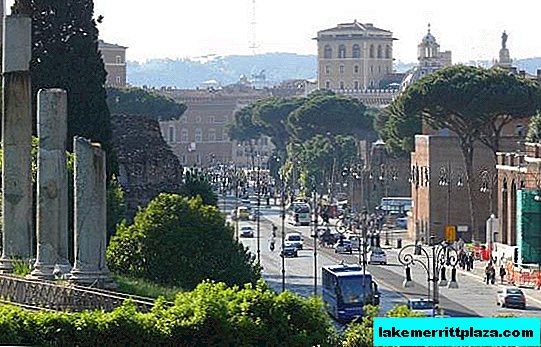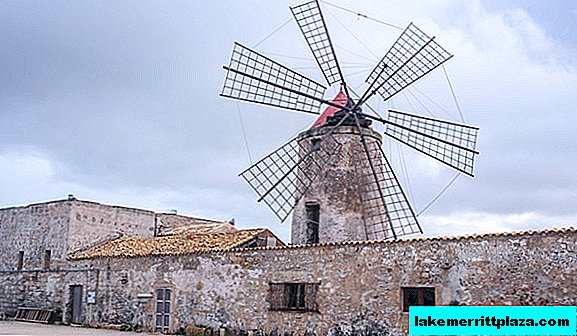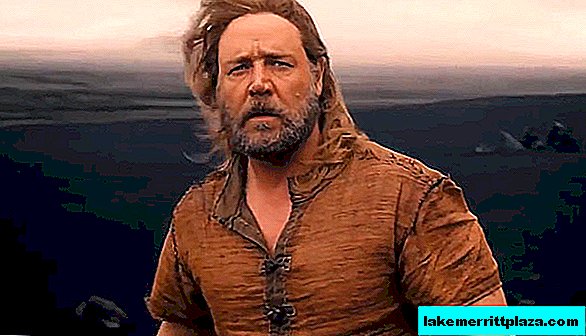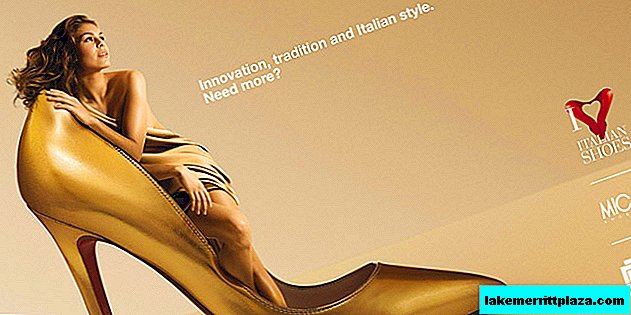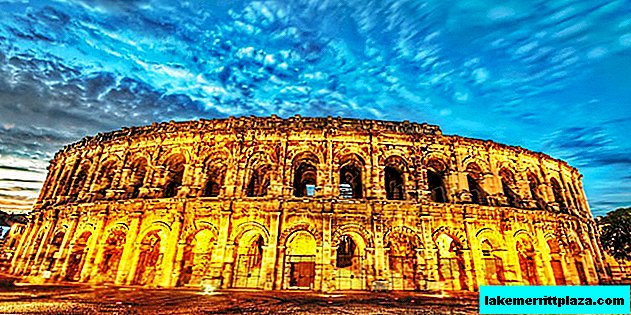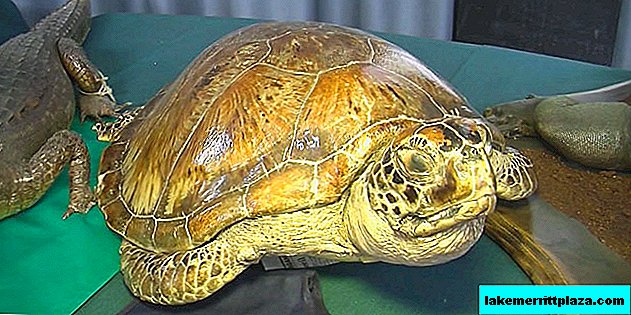Urbino is an Italian city in the Marche region, not far from the resort towns of Rimini and Pesaro located on the shores of the Adriatic (mare Adriatico), as well as the state of San Marino. Known as the birthplace of Raffaello Santi.
Urbino was one of the legislators of culture, education and politics during the Renaissance (Rinascimento). The city center is included in the list of UNESCO World Heritage Sites.
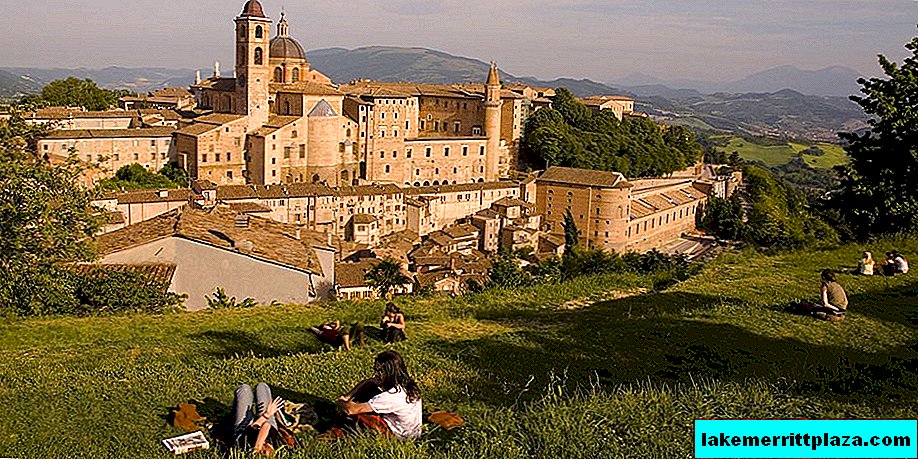
Story
Urbino was founded in the 3rd century BC. during the heyday of ancient Rome and was named Urvinum Mataurens. In the 6th century, during the Gothic wars, Urbino and the surrounding territories were several times conquered from each other by warlike Germanic tribes of the Lombards and Franks. In the 8th century, the city was transferred to the Papal throne by the Frankish king Pipin Short (Pipino il Breve). Since 1213 the clan of Montefeltro ruled the Duchy of Urbinsky.
A significant step in the development of Urbino was the reign of Federico da Montefeltro from 1444 to 1482. He proved himself as a philanthropist, an excellent diplomat and a wise ruler. It is he who rebuilds Urbino, makes of it an “ideal” city in the spirit of Renaissance views of a person who is worthy of life in the world of beauty and harmony.
Another significant step is the rule of Cesare Borgia (Cèsar de Borja i Catanei) since 1502, when Urbino joins the Papal States. But this was no longer a period of recovery, but a gradual decline, which lasted until the XVII century.
The last decades of the 18th century were marked by the conquest of Napoleone Buonaparte by the army, when Urbino lost most of the art monuments stolen and taken out by the troops of the great emperor.
The beginning of the 19th century changed the face of the ancient city: new buildings appeared, including the famous Cathedral. In 1860, as a result of the war of independence and liberation from Austrian rule, Urbino, together with Lombardy, Tuscany and other areas, enters the Kingdom of Italy.
Sights
In the Renaissance, Urbino was called the "Ideal City" because it represented the harmony of beauty and the rational organization of space.
The unique location on the slopes of the two hills makes it unique: it is struck by narrow cobblestone streets rising upward almost at right angles and going downhill, magnificent stone palaces and ancient residential buildings.
Via Aurelio Saffi, rising up to the historical center, is the central highway that appeared back in the Roman period, stretching from north to south (such streets were called cardo by the Romans). It takes townspeople and tourists to the main city square, Piazza Duca Federico, and then Piazza Rinascimento.
Palazzo Ducale

At Piazza Duca Federico, guests are greeted by the Ducal Palace (Palazzo Ducale), a beautiful Renaissance building. The palace houses a collection of great works of art - the National Gallery of Marche (Galleria nazionale).
The ducal palace was built by order of Federico da Montefeltro on the basis of a small castle. Since 1454, talented architects Piero della Francesca, Fra Luca Bartolomeo de Pacioli, Francesco di Giorgio Martini, Luciano Laurana, Paolo Ucello (Paolo Ucello) have been working on the project since 1454. ) The construction was supervised in turn by several masters, but the palace was never completed. The ensemble with the palace consists of the famous stables for 300 horses and the Spiral Staircase (Una scala a chiocciola), built by the architect Francesco di Giorgio Martini.
The ensemble inspired many masters even later: in the 19th century, the palace complex was supplemented by the building of the Teatro Sanzio Theater. In the XX century, the city administration was located in the Palazzo Ducale, and the museum appeared only in 1985.
University
The University of Karl Bo (Università degli Studi di Urbino Carlo Bo) was founded in 1506 as one of the first in Europe. At first, he studied medical sciences, later - jurisprudence and other sciences (rhetoric, the foundations of logic, etc.). Now it has 10 faculties.
Church of St. Domenic
The Church of St. Domenic (Chiesa di San Domenico), located opposite the Palace, combines the features of the Renaissance building of the XIV century and the characteristic signs of the Gothic style that appeared after the restructuring in 1729.
Republic Square

Piazza della Repubblica used to be a market place, it is connected with Piazza Duca Federico via Via Vittorio Veneto. The center of the trapezoidal square is the fountain built in 1927.
Cathedral
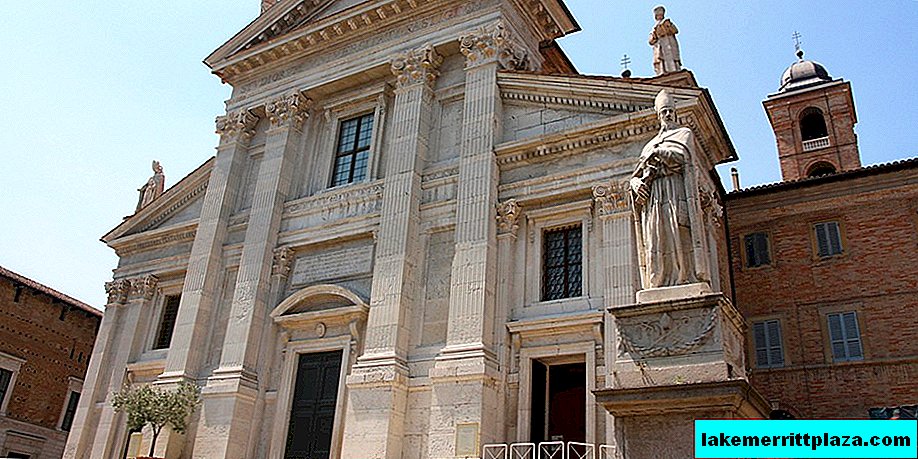
The cathedral is also located on the Piazza Duca Federico. Its original version was built in 1062 in honor of the Assumption of the Blessed Virgin Mary. Then the temple was rebuilt several times:
- Perestroika was first organized in the 15th century by order of Federico da Montefeltro under the leadership of Francesco di Giorgio Martini;
- In the 18th-19th centuries, according to the project of Giuseppe Valadiera, the Cathedral in its current appearance was rebuilt on the site of the old cathedral that collapsed after the earthquake of 1789.
In the interior, an altar by Camillo Rusconi (Camillo Rusconi), dome painting, as well as valuable paintings are highlighted:
- Assumption of the Blessed Virgin Mary by Franz Richard Unterberger;
- "Martyrdom of St. Sebastian" Federico Barocci (Federico Barocci,);
- The Annunciation by Raffaello Motta et al.
During the last reconstruction, the facade appeared according to the project of Camillo Morigia, a bell tower was added, and sculptural images of Saints - defenders of Urbino were installed. The most revered in Urbino is St. Crescentino, in honor of which the main holiday of the city is held on June 1.
Raphael's homeland
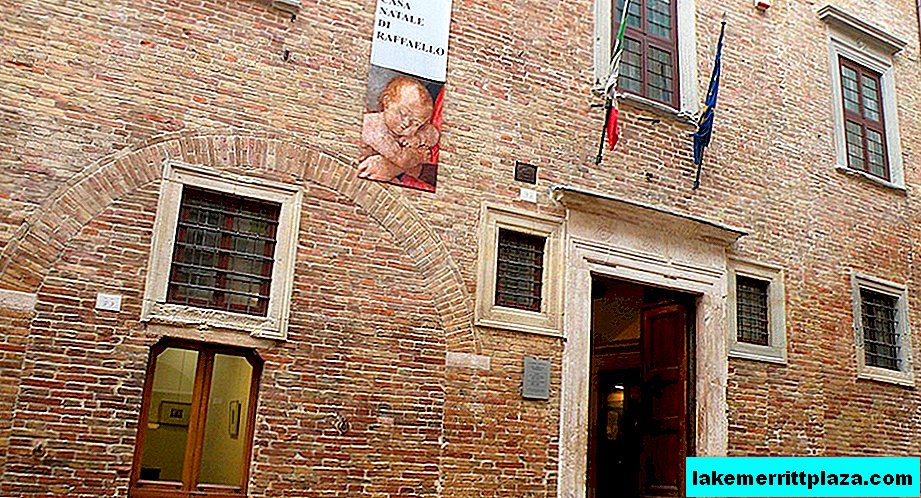
The three-story house number 57 on Via Raffaello, in which Raffaello Santi was born in 1483, houses the works of Rafael's father, the court painter and decorator Giovanni Santi, as well as frescoes painted by Rafael in his youth.
Rafael lived in this house until the age of 17. Since the 19th century, Rafael's house-museum has been here with a memorial plaque of marble on the facade.
In the house-museum you can see furniture and household items of Italians of the Renaissance, collections of works of art from ceramics, medieval manuscripts, printed materials, and a collection of numismatics.

All visitors are shown a special sink in which paints were prepared during the time of Raphael. You can also see genuine paintings by father Raphael and reproductions from the creations of his famous son.
- Official website of the Raphael House Museum: www.accademiaraffaello.it.
How to get there
The nearest airport to Urbino is in Rimini. Urbino can be reached from Rimini with a change in Pesaro.
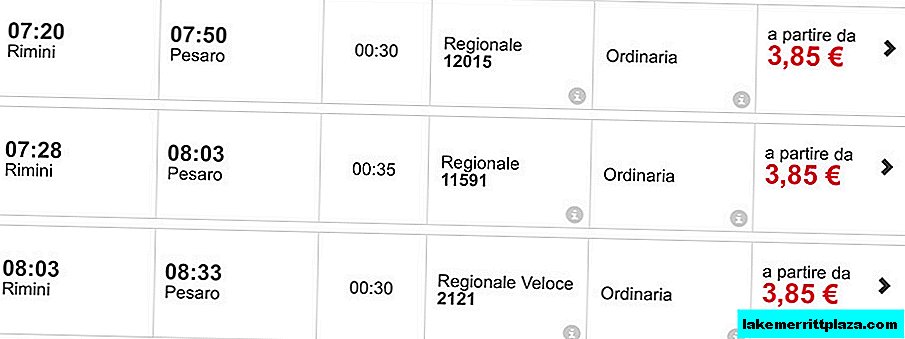
There is no direct train to Urbino, a ticket must be purchased to Pesaro station. Rimini - Pesaro trains run at intervals of 30 minutes, a ticket for the so-called regional economy-class train costs 3.85 euros. The journey time from Rimini to Pesaro is 30 minutes.
- See instruction: about Italy trains
There are also FlixBus.com buses from Rimini to Pesaro that can travel very cheaply in Italy and Europe.

You can get from Pesaro to Urbino by bus N46 in 45-50 minutes, buying a ticket costing about 3 euros. Bus schedules and ticket pricing information are available on adriabus.eu.
Download bus schedule 46
All these methods are quite long in time. A slightly more expensive option is to get to Urbino, but for that it is more comfortable and faster - rent a car. For example, when renting a car at the airport of Rimini, the cost is only 150 euros for 5 days. You will not be limited in movement and timetable, you can see the next year.
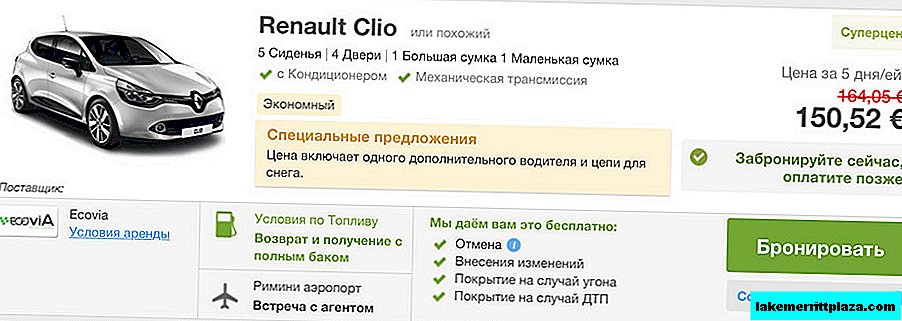
Hotels
Urbino offers over 49 comfortable accommodation optionscorresponding to the needs of tourists and representing a wide price range.
The most common options are 4 and 3 stars, equipped in ancient buildings.
3 stars
3 star hotels offer accommodation at affordable prices, within walking distance of attractions, overlooking the streets of the ancient city.
Albergo italia
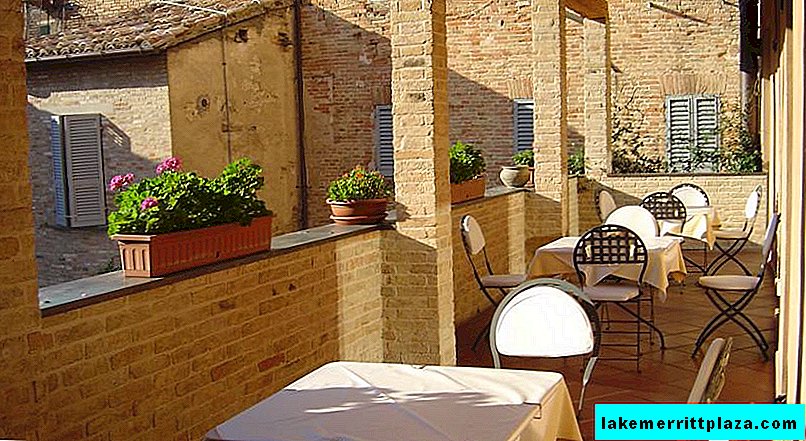
Albergo Italia Hotel, one of the oldest in the city, is a 5-minute walk from the Palazzo Ducale and Rafael House Museum. The rooms are richly decorated, the rooms have all the necessary appliances. The outdoor terrace invites guests to have breakfast in the fresh air.
Pets are allowed.
Hotel Piero Della Francesc

Piero Della Francesc is 15 minutes from the historic squares. The spacious rooms offer views of the picturesque streets and surroundings. The hotel has rooms with elegant interiors, there are rooms for seminars and forums, a restaurant.
The hotel provides the necessary facilities for the elderly and the elderly and vacationers with disabilities.
4 stars
4 star hotels are the best in the city, located in close proximity to the monuments of culture and architecture and famous for the high-level amenities created for tourists from all over the world.
Hotel Mamiani & Kì-Spa Urbino

Mamiani & Kì-Spa is a comfortable hotel with its own fitness center and spa, indoor and outdoor pools, and a panoramic terrace. The rooms in aristocratic style, decorated with reproductions of paintings by ancient masters, are equipped with modern appliances.
The hotel has created the conditions for pets.
Hotel bonconte

Bonconte is a hotel in an old villa. The guest rooms have antique furniture. The hotel has access to a private green shady garden serving a gourmet breakfast. The hotel is 5 minutes from the Ducal Palace, windows and elegant balconies offer wonderful views of the mountainsides, green gardens and vineyards. Visitors are provided with reading and conference rooms for events. Guests with pets are welcome here.
Apartments and B&B
The megapopular type of settlement provides unique services: rooms with comfortable courtyards, relaxation areas, and jacuzzi baths. Here you can fully relax and enjoy the atmosphere of the old city.
B&B Villa Paradiso

The Bed and Breakfast Villa Paradiso offers a magnificent view of the garden trees and the city's old streets, is 10 minutes from the main attractions of the city, 600 meters from the Cathedral. Vacationers will enjoy the whirlpool baths, a lovely terrace and a barbecue patio. From the hotel in 50 minutes you can take a bus to the sandy beach, running and cycling paths are equipped around the hotel.
Sanpolo 1544 Antique Room

Apartment Sanpolo 1544, housed in a 16th-century house 100 meters from the Palazzo Ducale, will welcome tourists with double rooms with one double bed, an electric kettle and a coffee machine, a bathroom with necessary appliances, comfortable furniture. A buffet breakfast is served in the apartment. You can get to the beach by public transport in 40 minutes.
Tip
Urbino is a city that has preserved the appearance and atmosphere of the Renaissance. The unique architecture of Raphael's homeland, in harmony with the peculiarities of the mountainous terrain, a kaleidoscope of artistic styles, the works of great masters will give an unforgettable experience and will become one of the brightest pages of a trip to Italy.

